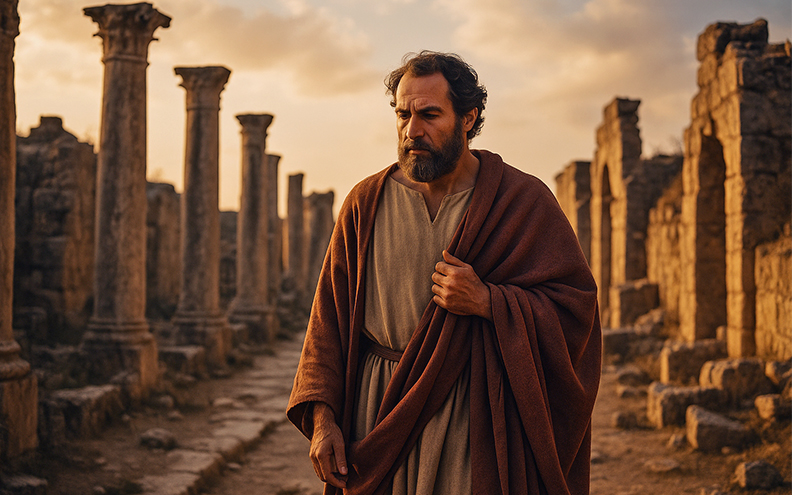Apostle Paul: From Persecutor to Preacher of the Gospel

The Apostle Paul is one of the most prominent and influential figures in the New Testament, whose life and ministry significantly shaped the global spread of Christianity. Born as Saul in Tarsus (present-day Turkey), he grew up in a strictly Jewish environment and studied under the renowned rabbi Gamaliel in Jerusalem (Acts 22:3). Notably, Paul was also a Roman citizen, a status that afforded him special privileges and protection within the Roman Empire (Acts 22:25-29).
Before his conversion, Saul was a zealous Pharisee who harshly persecuted early Christians. His transformation, which occurred dramatically on the road to Damascus, remains one of the most pivotal events in early Christian history. According to the Book of Acts, Paul was struck blind by a heavenly light and heard Christ’s voice saying, “Saul, Saul, why are you persecuting Me?” (Acts 9:4). This powerful encounter radically changed his life and became the launching point for his extensive missionary journeys.
From that moment forward, Paul became a tireless preacher of the Gospel, proclaiming the good news of salvation through faith in Jesus Christ. He traveled extensively throughout the Roman Empire, preaching the Gospel to both Jews and Gentiles. Among the many communities he established, the congregations in Corinth, Galatia, Ephesus, and Philippi are especially notable.
Paul’s theological contributions profoundly shaped Christianity. His teaching on salvation through faith rather than adherence to the works of the Law is central to his letters. For instance, in his Letter to the Ephesians, he clearly expresses this concept: “For by grace you have been saved through faith, and this is not your own doing; it is the gift of God—not the result of works, so that no one may boast” (Ephesians 2:8-9).
One of Paul’s most significant writings is his Epistle to the Romans, where he thoroughly outlines the doctrine of justification by faith. He writes: “The righteous shall live by faith” (Romans 1:17). This very doctrine later became foundational for the Reformation and transformed how humanity perceived its relationship with God.
Despite his extensive ministry among Gentiles, Paul never forgot his Jewish heritage and deeply desired the salvation of his own people. In Romans, he passionately expresses this sentiment: “I speak the truth in Christ—I am not lying, my conscience confirms it through the Holy Spirit—I have great sorrow and unceasing anguish in my heart. For I could wish that I myself were cursed and cut off from Christ for the sake of my people, those of my own race” (Romans 9:1-3).
Paul’s life was marked by hardship and suffering. Despite frequent beatings, persecution, and imprisonment, he never wavered in his faith and continued preaching. He famously wrote: “I can do all things through Christ who strengthens me” (Philippians 4:13).
Tradition holds that Paul was executed in Rome under Emperor Nero around 64-67 AD. Nevertheless, his legacy has endured for millennia, continually inspiring generations of Christians in their faith, service, and devotion to God.
A critical aspect of Paul’s ministry was his remarkable ability to connect with diverse groups of people. He famously stated: “I have become all things to all people, that by all means I might save some” (1 Corinthians 9:22). This underscores his sincere desire to make the Gospel accessible to everyone.
Paul also profoundly emphasized the importance of love, considering it the highest expression of faith: “And now these three remain: faith, hope, and love. But the greatest of these is love” (1 Corinthians 13:13). These words remain profoundly relevant today, reminding believers of the essential role practical expressions of love play in everyday life.
Paul’s life and teachings vividly illustrate how God can powerfully use even the most unexpected individuals to fulfill His divine purposes. His transformation from persecutor to influential missionary and theologian stands as one of the greatest testimonies of the power of God’s grace and mercy.
